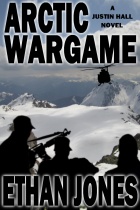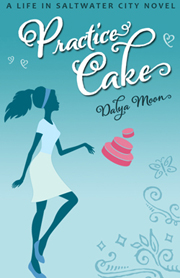Tags
Do you consider the first line to be an important part of a story? If so, why?
It can be, but not always. Some stories, especially shorter ones, need to start out with a strong first line to provide that hook and get things off to a running start. With other stories, however, more important elements eclipse the need for a good first line. For example, I remember quite vividly the first line of The Hobbit, but Lord of the Rings? I can’t remember it off the top of my head, and that doesn’t take away from my experience of the book.
Do you find first lines easy to come up with, or challenging? Do you have a technique, or a ritual, that you go by to make it easy?
This is going to sound frustrating, but every book is different, and I don’t really have a consistent method except to do what works. For Bringing Stella Home, I hung on to a pretty bad opening just for the sake of the first line, then tossed it out and decided not to put too much importance on it. For Genesis Earth, the first line was what drove me to finish the story.
In general, though, I think of first lines in terms of the story question, which should be raised in the first page or two of the book. For example, the story question for Ender’s Game is “will Ender Wiggins save the world without destroying himself in the process?” For Pride and Prejudice, the story question is “will the Bennett girls marry the right young men?” The first line is an important part of the hook, and since the hook should raise or touch on the story question in some way, so should the first line.
I do think it’s important not to overthink things, though. Sometimes, you just have to take a step back and not lose sight of the forest for the trees. When you’ve got a good first line, you’ll know.
What consequences, if any, do you think there are in having a badly written first line?
To be honest, I don’t think the consequences of doing it “wrong” are always necessarily bad. For example, my favorite book of all time is The Neverending Story by Michael Ende. The first line of that book isn’t particularly memorable. It fits really well with Ende’s voice, however, and for that almost fairy-tale kind of story, it works quite well. If he’d spent a lot of time trying to rewrite the first line to fit some kind of formula, or to follow a set of rules, it would have clashed so much with the rest of his writing that it would have felt stilted and out of place. But as it is, I think it works fine.
That said, I don’t think that’s a license to be lazy or to say that everything works just fine simply because you wrote it. It’s an art. Pablo Picasso may have charged thousands of dollars for a drawing he scribbled on the back of a napkin, but he had a whole lifetime of work and experience to justify doing something like that. You’ve still got to put in the proverbial million words.
What’s your favourite first line that you’ve ever read? And can you recall a worst?
I’m not a huge romance reader, but my favorite first line would have to be the classic from Pride and Prejudice:
It is a truth universally acknowledged, that a single man in possession of a good fortune, must be in want of a wife.
I can’t think of any other first line that sets up the story more perfectly, or gets across the main idea in a better way.
As for the worst first line I’ve ever read, I don’t think I can point to any one. No matter how many bad ones I come up with, I’m sure there’s a worse one somewhere that I’ve read and forgotten, or a book I didn’t finish where the first line just didn’t fit. That’s the thing about poorly-written books, though–you tend to forget them.
What is one of your own best first lines?
Earth was a ghost that haunted me.
That’s the first line for Genesis Earth, my first published novel. I know I’m not the best judge of my own writing, but that line was what kept me from giving up and throwing it out. It seemed like such a zinger, I just had to finish the rest of it–and I’m glad I did!
We’re all sharing here! What’s one of your worst first lines?
My own first line is probably from my other first novel, which will never see the light of day. After listening to a lot of writing advice without having enough time or experience for it to resonate, I took some of it a little too literally while completely ignoring the rest:
Pravda Vitezi: Truth Prevails said the ornate blue lettering along the clean white walls of the narrow, zero gravity corridor leading to the bridge of the Avion-45.
What are some things a first line *shouldn’t* be? What are some things that you’ve read in first lines that really rubs you the wrong way?
A first line shouldn’t be pretentious. It shouldn’t feel like it’s trying too hard. It’s like women’s make-up: if you immediately notice that it’s there, something is probably wrong.
Do you have any suggestions for other authors on how to write a great first line? Have you heard any great advice yourself?
I think it’s a little like Bruce Lee’s fighting method, where he described his journey from novice to master. At first, a punch was just a punch. Then, as he studied various martial arts and fighting techniques, it became an incredibly complicated thing which he was constantly trying hard to perfect. Once he became a master, though, a punch was just a punch.
Do you have any final words?
Don’t forget to have fun!
Joe Vasicek is a science fiction writer who has lived in more than twenty different places in the past ten years, most recently Kutaisi, the capital of ancient Colchis. When he writes, though, his mind is anywhere but this world. His most recently published novel is Desert Stars, a tale of homecoming, intrigue, and romance on the fringes of an interstellar empire that has forgotten its holiest legend: the story of Earth. He keeps a regular blog at One Thousand and One Parsecs, and can also be found on Twitter, Facebook, and Goodreads. Sometimes. But no matter where he goes, he’s always writing.

 Do you consider the first line to be an important part of a story? If so, why?
Do you consider the first line to be an important part of a story? If so, why? Ethan Jones is a lawyer by trade and the author of Arctic Wargame, a spy thriller
Ethan Jones is a lawyer by trade and the author of Arctic Wargame, a spy thriller 
 1. Do you consider the first line to be an important part of a story? If so, why?
1. Do you consider the first line to be an important part of a story? If so, why?